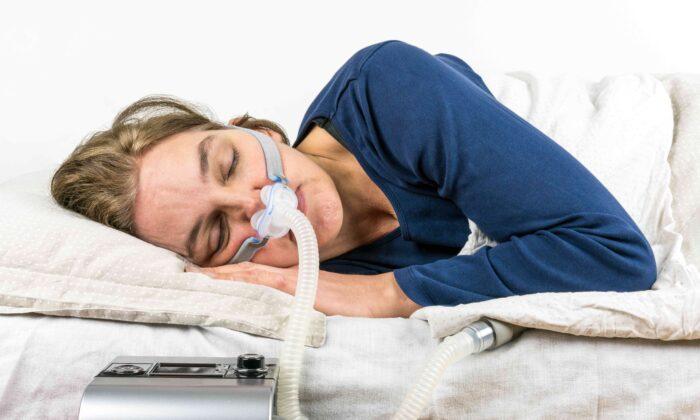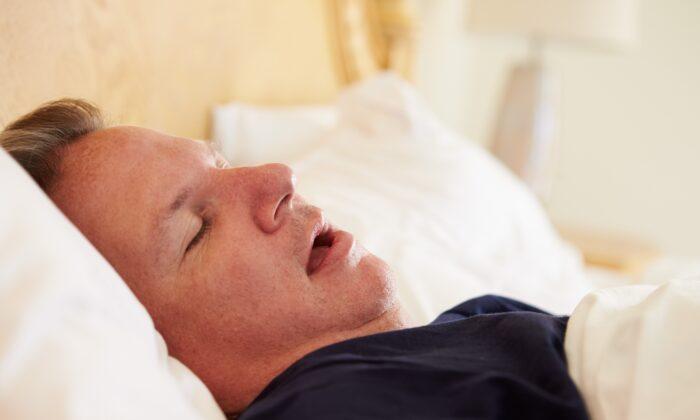How well did you sleep last night?
The question goes to the heart of how to measure your sleep quality. If you haven’t already, I invite you to shift your attention away from the number of hours you sleep and instead learn to gauge the quality of your slumber. Once you explore several dimensions of sleep quality, more solid footing will place you on the right path to solving virtually any sleep problem—whether at bedtime, middle of the night, early morning, or the next day.
Got it? Sleep quality rules!
Here’s the kicker—you cannot directly measure your own sleep quality—there are no reliable, data-driven, do-it-yourself scanners to analyze brain waves inside your head (electroencephalographic, EEG waves) while you are sleeping. This technology is soon on the way—but in the meantime—indirect subjective perceptions can guide you in assessing your own sleep quality and more than compensate for lack of direct data.
To begin, sleep quality is based on the physiological patterns of the EEG brain waves, so sleep is always a physical thing affecting mind and body. No matter what you aim to measure about your sleep, you always want to consider its connection to brain waves.
Best example: When tired or sleepy during the day, be extremely suspicious that something is interfering with your slumber—a healthy sleeper is unlikely to feel tired or sleepy during the day. Most commonly, physical disruption to your sleeping brain waves generates this tiredness or sleepiness.
Doesn’t everyone experience some tired or sleepy feelings during waking hours? That’s a big “no.” A normal sleeper experiencing high-quality slumber (aka normal brain wave patterns), night after night, does not report those feelings. Their sleep is functioning as designed to fully restore the mind and body.
Could you feel tired or sleepy from insufficient sleep? Sure, but the game-changer is recognizing that bad and broken sleep often leads to shorter sleep. And, to make this new perspective more complicated, bad and broken sleep also causes some individuals to sleep too much. Now you might be asking, “Is poor sleep quality so harmful to the brain that it could cause me to sleep too little or too much or both in alternation?” That’s a big “yes.”
So, why do so many health care professionals routinely ignore the obvious connection between chronically degraded sleep quality and daytime tiredness and sleepiness? One theory holds the enormous consumption of caffeine in modern society masks these serious daytime symptoms.
After measuring sleepiness and tiredness, next gauge your daytime energy. A normal sleeper possesses an abundant capacity to function. It’s not just the absence of tiredness or sleepiness—their high energy levels get things done throughout waking hours. This type of high energy is generated from outstanding sleep quality—not caffeine.
No knock against caffeine, which arguably is the single most widely used treatment for fatigue and mild depression. Annually, caffeine prevents millions of accidents, injuries, and deaths on our highways and at our workplaces.
Caffeine enhances mental sharpness, but for a normal sleeper, mental sharpness arrives without a supplement soon after awakening each morning. Monitoring cognitive function—especially attention, concentration, and memory—are subtle yet essential ways to determine the quality of your sleep.
To this day, most health care professionals mistakenly suggest, “you’re getting older,” as the pat answer for declining memory. In fact, when memory declines, perhaps the very first thing to consider is whether degraded sleep quality is damaging your brain.
Remarkable stories abound in the scientific literature of individuals gaining dramatically better cognitive function after treating sleep disorders, which had been destroying their sleep quality for years. I’ve treated thousands of such patients in my career. Attention deficit disorders have been reversed by treating sleep conditions, and some cases of alleged depression or dementia improved after targeting sleep quality problems.
Far too many individuals with cognitive issues are steered away from a sleep assessment and then lose valuable opportunities to improve executive functioning. These delays in proper care often exceed decades, because so many health care professionals ignore or discount the potency of good sleep while focusing too much on hours of sleep.
In measuring sleep quality, we don’t stop at your brain. We now know sleep affects nearly every system in the body, and the major sleep destroyer involves sleep fragmentation, or sleep frag for short. Sleep frag is the physical markings of not sleeping through the night and not consistently spending appropriate intervals in necessary stages of sleep.
Instead, your brain fluctuates all night between short periods of arousal, then back to sleep, and then another arousal. This cycle plays out hundreds of times per night in a poor sleeper, who may never gain much of the deep sleep that is so vital to recovering from the previous day’s stress and workload.
Science yields precise explanations of how poor sleep quality damages the mind and body. These constant sleep frag episodes of arousal-sleep-arousal (too brief to sense while “sleeping”) specifically damage blood vessels—large and small. The attack occurs on the inner lining (endothelium) of vessels, which should otherwise efficiently deliver oxygen and nutrients to your tissues as well as remove waste products through a relatively frictionless flow of blood.
Remarkably, when you sleep poorly, blood vessels receive mixed messages from the brain due to the nonstop arousal-sleep-arousal cycles. These signals generate excessive contractions and dilations in the vessel walls through much of your circulatory system (i.e., the heart pumping blood to every part of your body). Disturbed vessel functioning follows (aka endothelial dysfunction), leading to abnormal blood flow.
Making things worse, endothelial dysfunction has two partners in crime to create a toxic trifecta—intensifying the assault on your blood vessels—again all starting with sleep fragmentation. Pro-inflammatory biomolecules and oxidative stress release harmful biomolecules directly attacking the inner lining of the vessels. Sleep-related breathing disorders produce the most severe oxidative stress, which can be equivalent, in some cases, to smoking a pack of cigarettes a day.
This trifecta of abnormal physiological changes is well-described in hypertension research, where according to several sleep researchers, changes to the inner linings of numerous blood vessels indicate the earliest phase of high blood pressure. That’s just for starters.
If poor sleep quality continues for years or decades, as is sadly the case for so many, these circulatory changes can do far more than aggravate hypertension. They can fuel serious diseases involving damage to the coronary arteries and trigger cardiovascular diseases, such as heart attacks, heart rhythm disturbances, heart failure, strokes, and heart valve damage.
Those are some pretty big health issues, and we’re only getting started. Having a serious sleep disorder is like suffering a severe case of depression or diabetes or both. Bad sleep, though, is more insidious as it’s difficult to spot how all the damage is occurring.
Speaking of which, sleep disorders worsen both diabetes and depression. Thus, a useful measuring stick for sleep quality is to assess whether all your current medications are treating other medical and mental health conditions as effectively as expected.
Tragically, the largest epidemic of untreated sleep disorders occurs in the mental health population—yet sleep treatment for most is pills and more pills. This narrow approach, however, offers the means to rate your sleep quality. For example, if you use sleeping pills, antidepressants, or anti-anxiety pills and continue sleeping poorly, the lack of benefit clearly indicates something else is going on in your very physical sleeping brain waves.
Best bet—sleep is responding poorly to the drugs. Or, if medications do not work effectively for anxiety, depression, or PTSD, the lack of benefit may be a red flag suggesting another factor in the mix. Again, poor sleep must be considered in the face of ineffective medications—not to mention several trials of ineffective medications—a common occurrence in the world of psychotropic prescription drugs.
Unfortunately, the majority of professionals in psychiatry and psychology place their emphasis on more pills or more psychotherapy without consideration for non-drug, sleep therapies. In one extremely concerning scenario, growing evidence indicates a strong relationship between sleep-related breathing disorders and PTSD.
Most PTSD cases are treated with medications or psychotherapy, yet an astonishingly large proportion of trauma patients also suffer from undetected and untreated sleep apnea, which through the toxic trifecta generated by the arousal-sleep-arousal cycle impairs brain function and worsens PTSD. However, the vast majority of mental health professionals receive no training to accurately screen for this prevalent condition.
Still, more health issues are notable—some quite surprising. When you wake up at night to use the bathroom, it often turns out a specific cause of sleep fragmentation triggers your kidneys to overproduce urine. Or, when kidney function is declining without obvious cause, it could be poor sleep quality.
When your immune system weakens and you experience greater susceptibility to respiratory infections, poor sleep quality is likely involved. When you cut or otherwise injure yourself, and the healing process seems too lengthy, you need to evaluate how well are you sleeping.
Need more convincing? There are several connections between poor sleep quality and pain syndromes—both physical and emotional pain. Nearly all patients with fibromyalgia suffer from sleep fragmentation caused by sleep-related breathing problems. Poor sleep quality interferes with overall pain management and likely induces greater use of pain pills.
Poor sleep quality is linked to major problems with insomnia and nightmares, adversely influencing afflicted individuals to consume excess alcohol or abuse drugs to fix these conditions. Last, catastrophically, poor sleep quality may be a factor in accidental overdoses or suicide attempts—sometimes with fatal outcomes.
For reasons not easily explained, only a minority of sleepers are blessed with the extraordinarily grand fortune of genuinely normal sleep. For the rest of us, we could profit immensely from specific, personally-tailored treatments to reverse our poor sleep quality and turn it into the healthiest possible, life-saving slumber.





